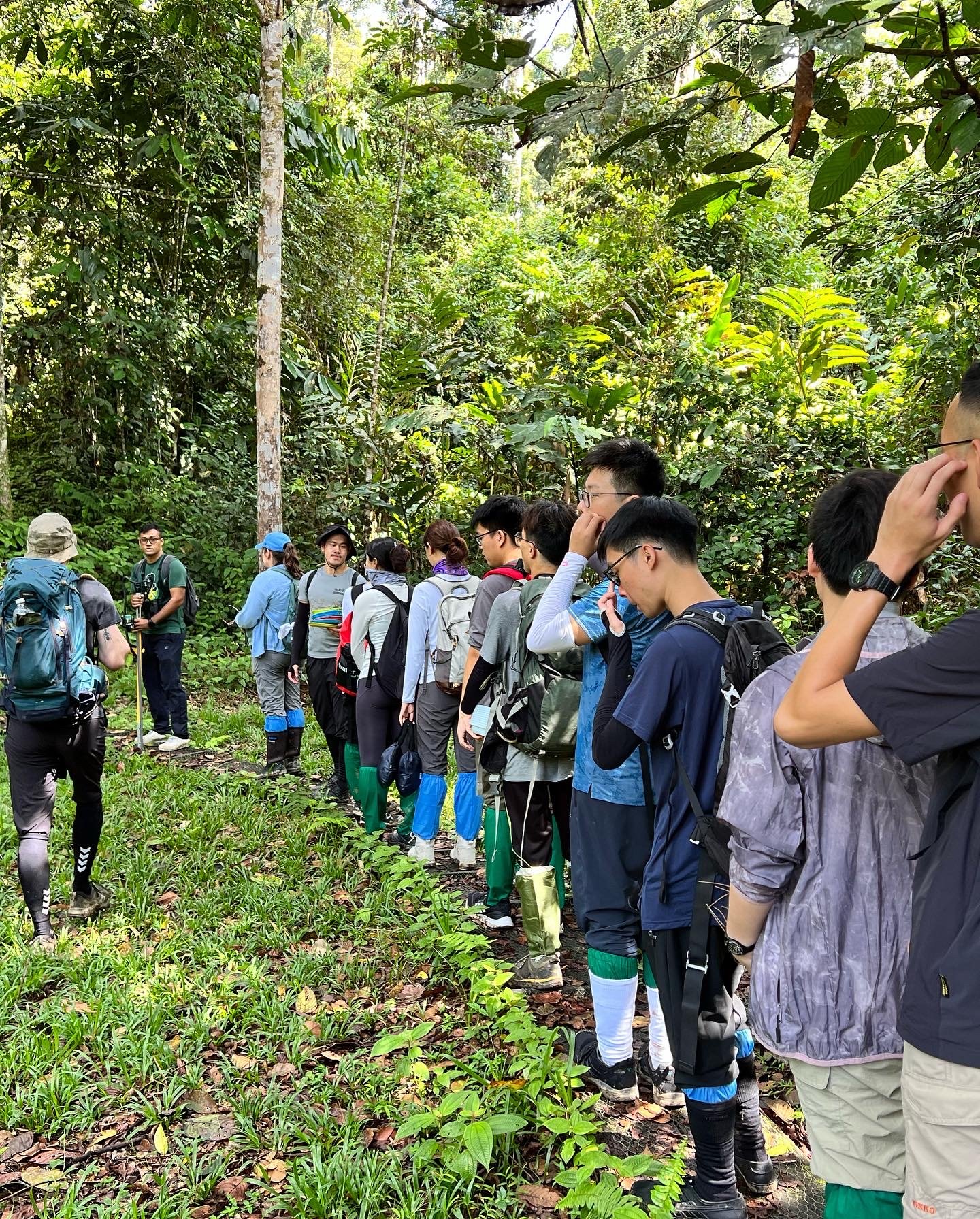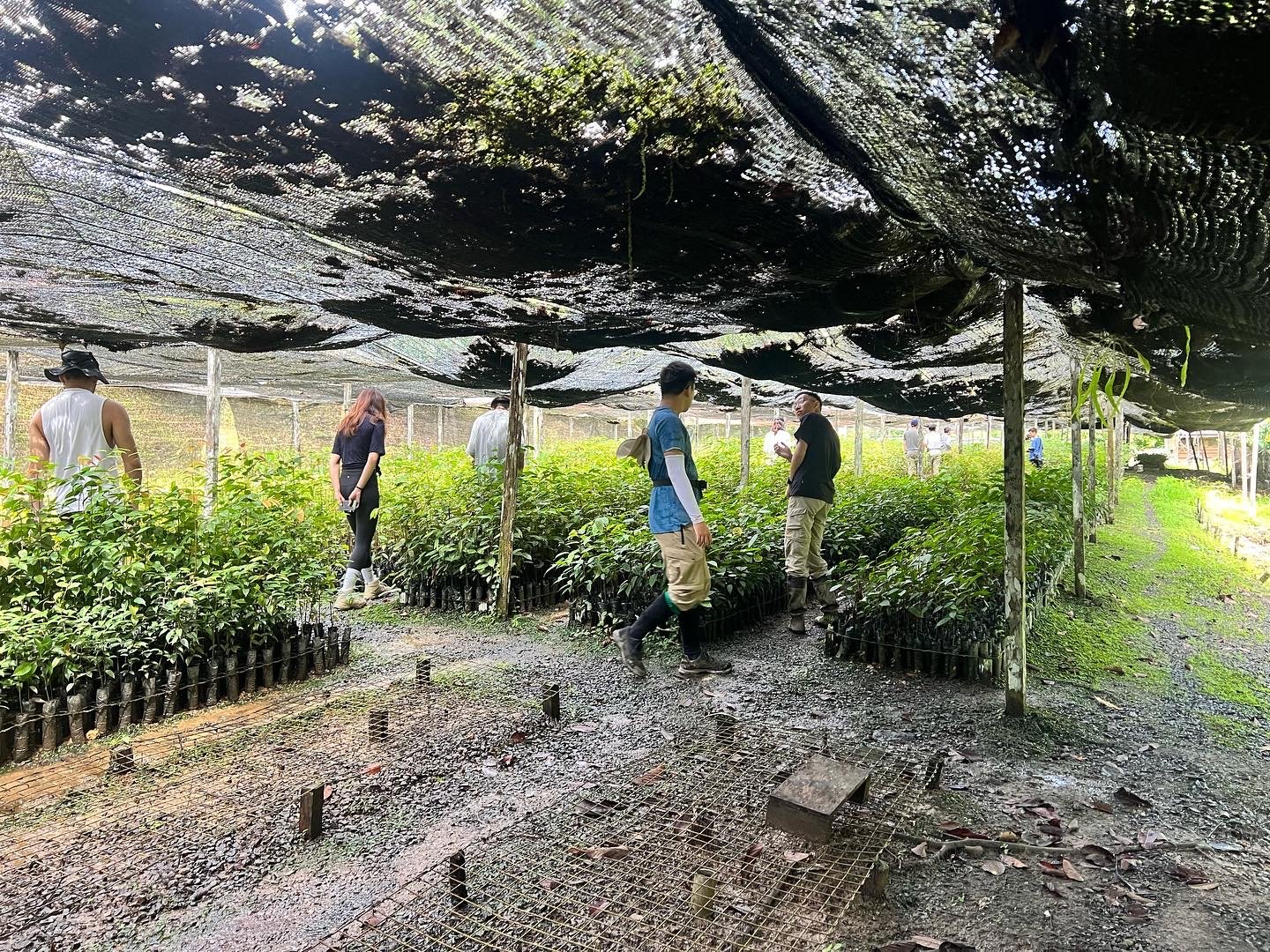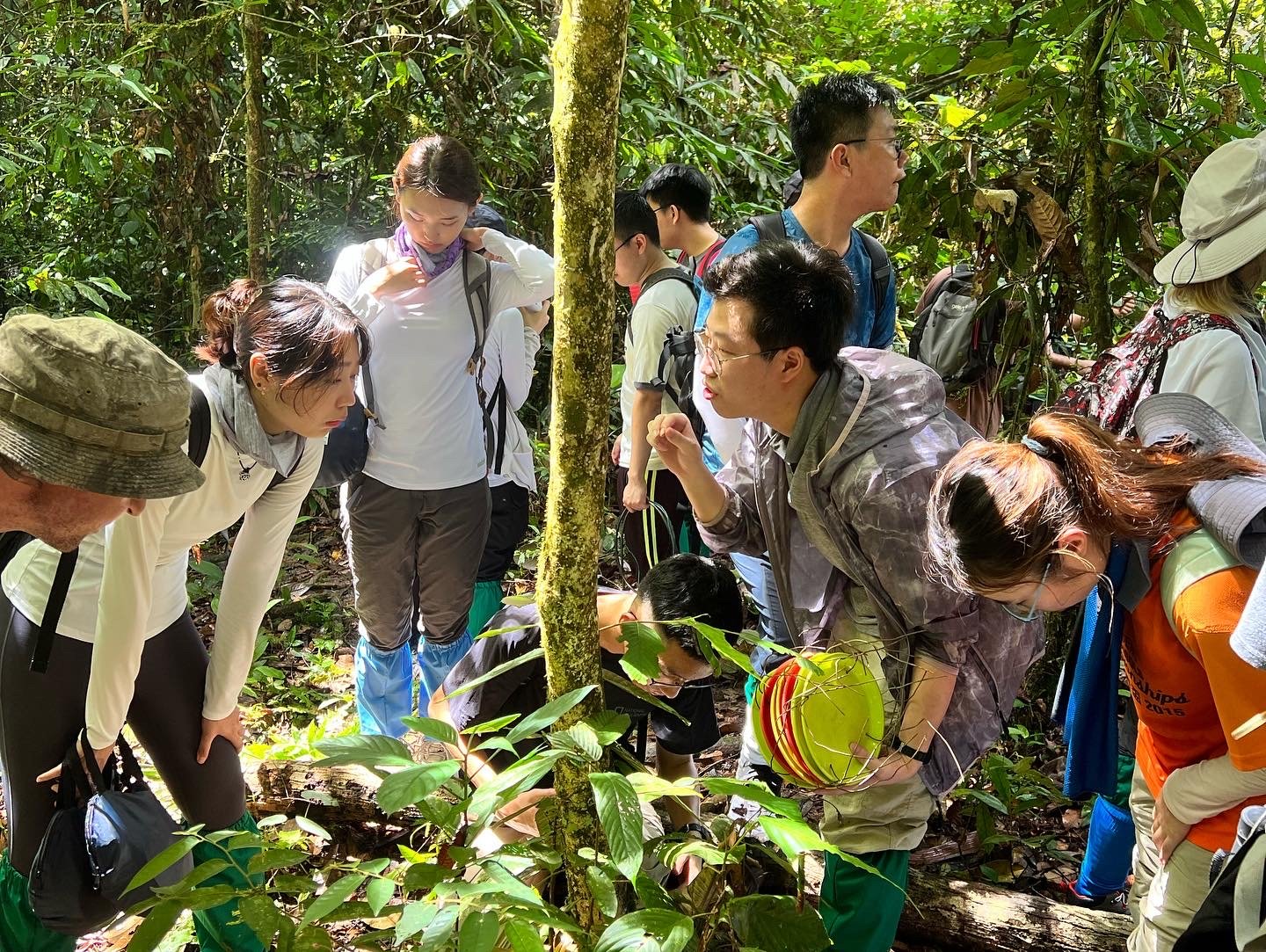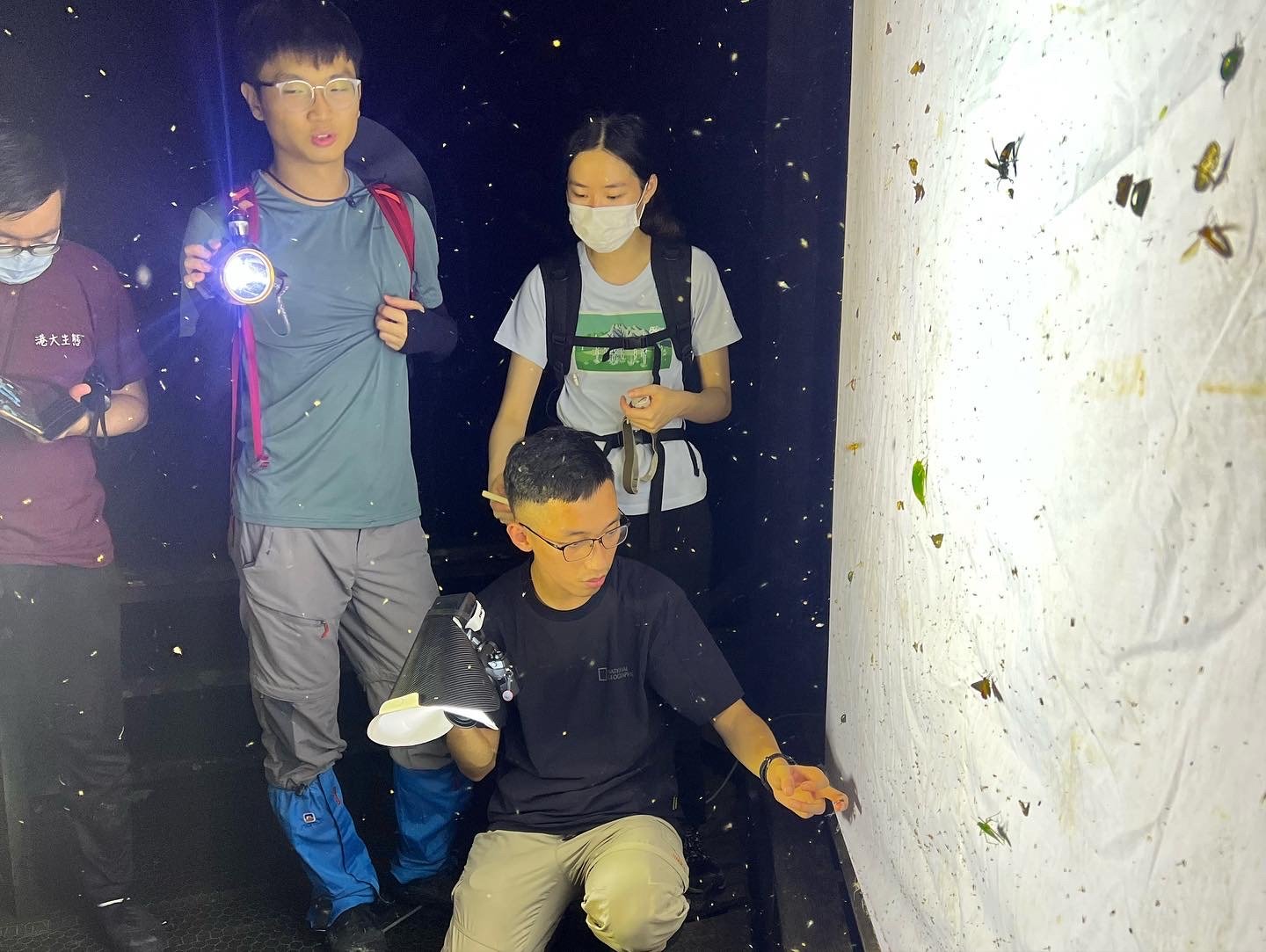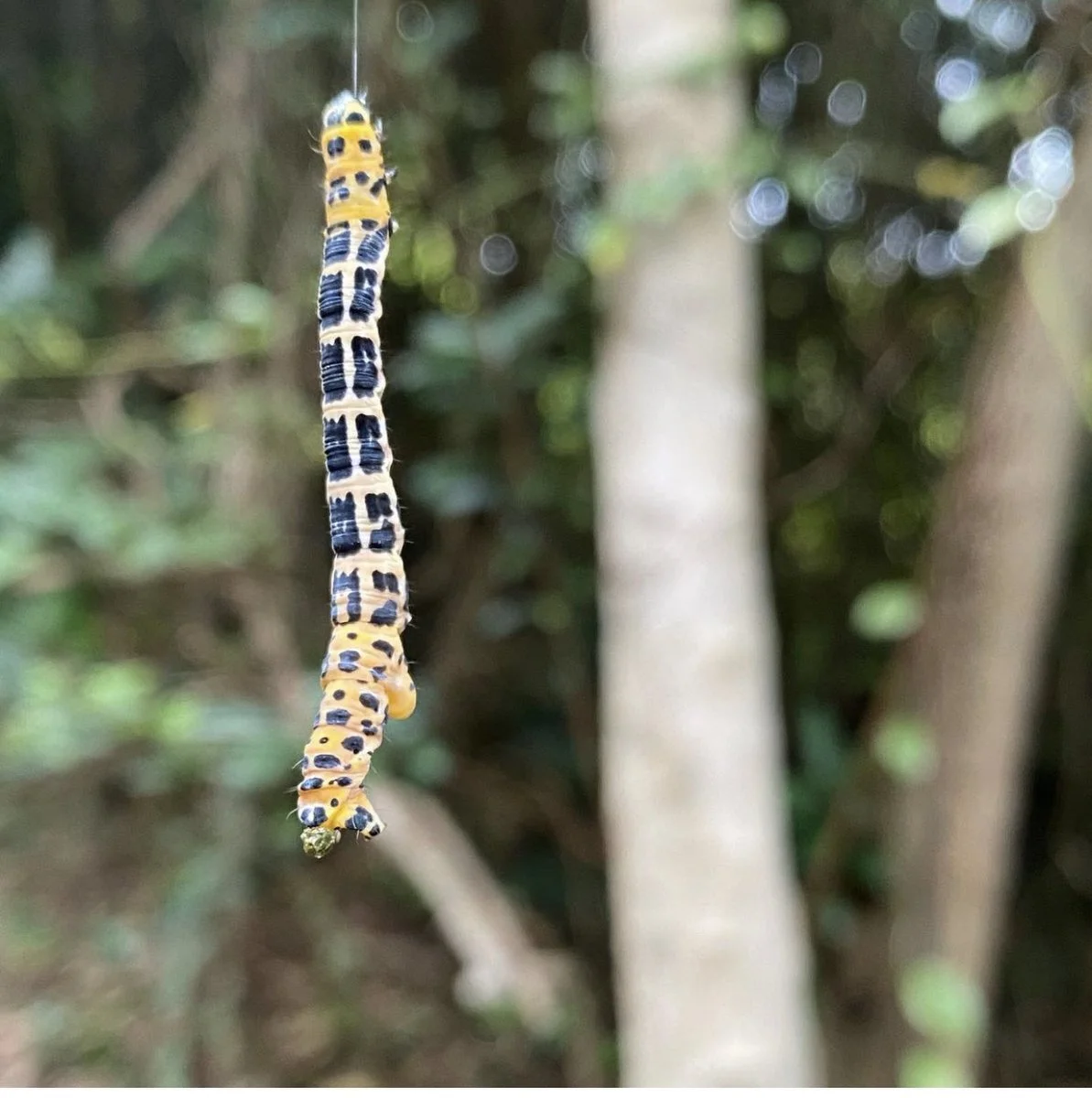We are hiring a postdoc! Insect dynamics through time in the tropics
Are insects declining in the tropics? We aim to understand insect dynamics through time in tropical forest habitats. We are looking for a team member to join our new project re-sampling historical insect biodiversity studies in Australia and Malaysia. Our collaborative team includes Dr Louise Ashton, Dr Michael Boyle, Professor Timothy Bonebrake, Dr Jin Wu, Dr Eduardo Maeda, Professor Roger Kitching and Professor Nigel Stork.
Applications are invited for a three year appointment as Post-doctoral Fellow in The Biodiversity and Environmental Change Lab (www.louiseashton.net) at the University of Hong Kong. Applicants should possess a Ph.D. degree in insect ecology (or related) with experience in tropical field work. Knowledge of beetle or moth identification is desirable but not essential. The applicant should also have knowledge of a range of insect sampling techniques, the ability to organise remote field projects independently and collection management. Those who are going to complete the Ph.D. degree in the near future are also welcome.
Daintree canopy crane est 1998
Photo credit: Nigel Stork
More details and online application via the below link:
https://jobs.hku.hk/en/job/519951/postdoctoral-fellow
We are hiring a postdoc! BVOCs and trophic interactions in tropical rainforests
We are looking for a postdoc to work on BVOCs and trophic interactions for a two position. Applicants should possess a Ph.D. degree in insect ecology, with research experience in, and knowledge of, biogenic volatile organic compounds (BVOCs) and plant-herbivore-predator interactions. They should also have experience in field work, strong publishing record, problem solving skills, good time management and the ability to work collaboratively. Applicants who have experience in ecological experiments and scientific communication skills are desirable.
The appointee will participate in a NSFC/RGC joint funding study of BVOCs roles for canopy and understory trophic interactions. The collaborative project will employ observational and experimental techniques to understand the relationships between BVOCs, herbivores and predators across climatic gradients. The appointee will lead field work in tropical and sub-tropical canopies of Yunnan Provence, China. The appointee will take a lead role in coordinating field sampling, laboratory analyses, preparing manuscripts for publication and disseminating the research at international conferences. Enquiries about the duties of the post should be sent to Dr. Louise Ashton at lashton@hku.hk
Salary will be around 58K USD/year for a two year position, in addition to annual leave and medical benefits.
The University only accepts online application for the above posts. Applicants should apply online and upload CV and research statement addressing the selection criteria. Review of applications will commence as soon as possible and continue until 10 February 2023, or until the post is filled, whichever is earlier.
Online applications can be submitted here: https://jobs.hku.hk/en/job/518708/postdoctoral-fellow
More details and how to apply here:
https://jobs.hku.hk/en/job/516259/senior-research-assistant#.YxBfiNniqEk.twitter
Friends in the forest: Jun
By Brinna Barlow
A large part of novel scientific research is the collection of samples, which will eventually be converted into numbers for quantitative, data-driven analysis. Most of my career as an ecologist has focussed on sample-collection or “fieldwork”, whether that be for my own research, as a research assistant collecting samples for another researcher or working for a Non-Government Organisation. Often this work takes place in remote locations: secluded savannahs, remote rainforest, and other far-flung fields. Despite the isolation of locations, this is not isolating work. It’s important to have at least one teammate for safety, efficiency and (hopefully) for fun.
In this series of blogs entitled “friends in the field” I would like to introduce some of the people who have made my research possible and to share their experience of what it means to do fieldwork in Hong Kong.
In this fourth instalment I would like to introduce Jun, he is a third-year undergraduate studying at the University of Hong Kong, currently undertaking an internship in the Biodiversity and Ecological Change lab and graduating this summer.
I am here with Jun who is working on an internship in our lab. Jun, please tell us what that entails.
This internship is for my capstone course that I have to fulfil for my graduation. For this internship I am helping you to study insect food webs and collecting the samples like some leaves, some mosquito larvae etc. to learn more about the interactions.
And do you think you’ve learnt anything so far?
Hmm, yes. I think I have learned some techniques to use for lab work.
So, have you got any previous experience doing fieldwork?
I have taken some courses in the past which involved a field trip or fieldwork.
What sort of work was that?
We identified and we measured the trees in a quadrat.
Oh that’s a classic, that’s where we all start. Anything else?
Also, I have gone down to the mangrove sites and identified the trees and learned about the structure and the survival tactics of the mangroves.
Ok, so you have some experience. What are your expectations for the fieldwork that we will do today?
We are going to hike a little bit and go to different sites to collect the leaf samples and then just hike back. I don’t know.
Yeah, that’s pretty much it for sure. Ok, any other expectations?
Hmmm, I think it will be a fun one.
Ok, well I hope so. That’s all the questions for now and I will ask you the other ones when we have finished.
So, this is Jun at the end of the day. So, earlier you said you had some expectations about doing the work and I want to know: were your expectations met?
Mmm, I think it’s a bit more challenging than I anticipated.
Oh yeah? Ok.
Yeah, it’s kind of interesting though.
Ok, good. I am glad. What was something that surprised you about today?
Mmm, I was not expecting it to be so sunny… and there are quite a few quite spikey trees.
Oh yeah.
Yeah, I got poked a bit and some other trees hit me in the face.
Yeah, that happens. Ok, to summarise and wrap it up: how was the overall experience?
I think it’s great.
Wow, that’s good, that’s good stuff. Thank you very much.

